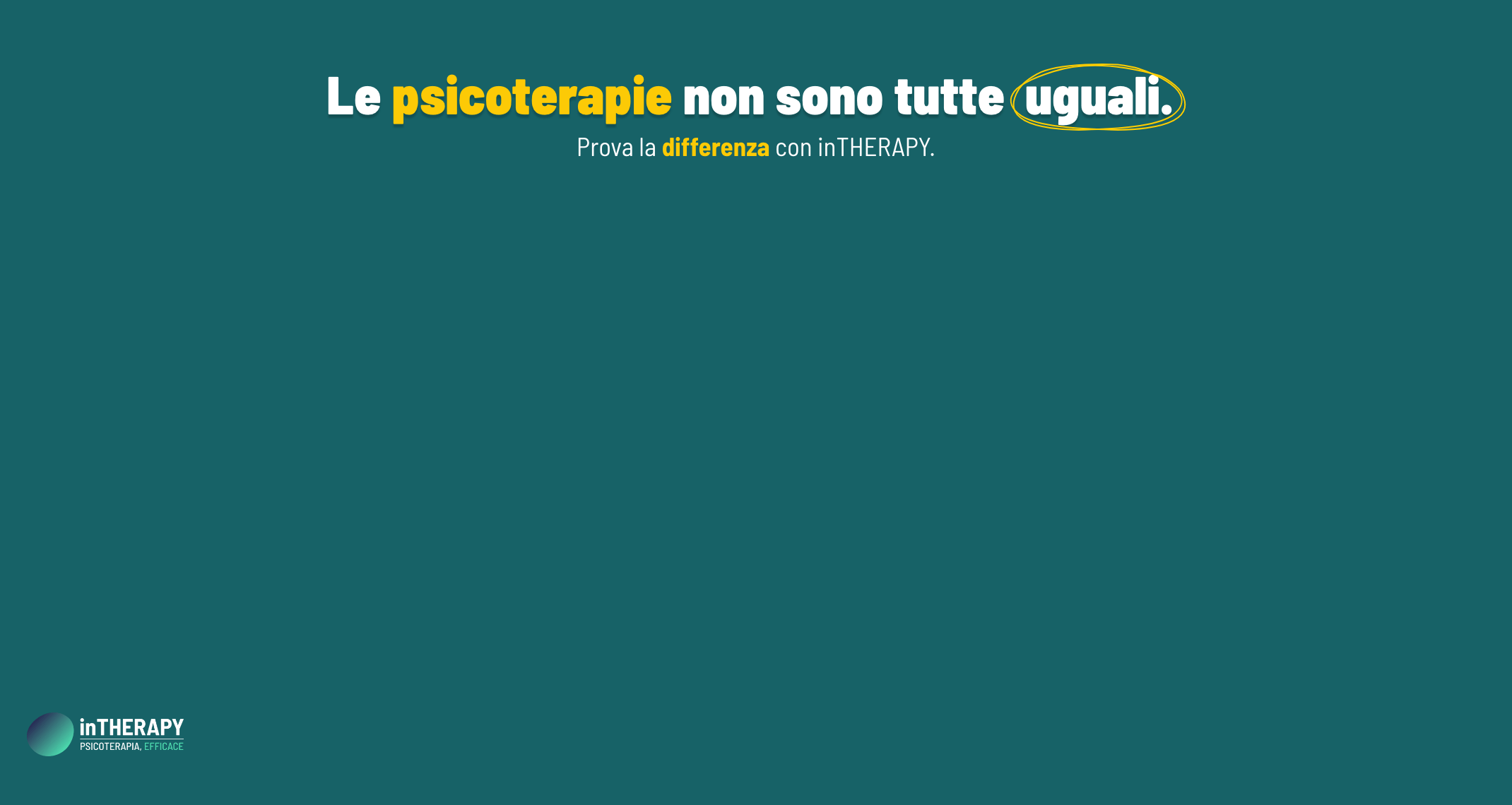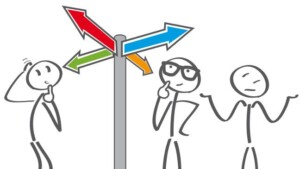Siamo solitamente portati a pensare che la decisione migliore richieda del tempo e un’attenta valutazione dei pro e dei contro, tuttavia una serie di studi recenti, facendo riferimento alla teoria del pensiero inconsapevole, dimostra esattamente l’opposto.
Quando ci troviamo nella situazione di dover decidere qualcosa di importante per la nostra vita, siamo solitamente portati a pensare che la decisione migliore richieda del tempo e un’attenta valutazione dei pro e dei contro. Eppure una serie di studi recenti, condotti in Olanda, dimostra esattamente l’opposto.
Secondo gli autori, quando si tratta di decisioni su questioni “semplici”, prendersi del tempo per valutare le caratteristiche e gli scenari possibili è effettivamente vantaggioso e può aiutare a prendere la decisione migliore. Tuttavia, quando sono in ballo decisioni “complesse”, vale a dire quelle che includono un gran numero di caratteristiche, fattori e scenari possibili, i loro studi dimostrano che non pensarci affatto e scegliere per così dire d’istinto, porti a una decisione migliore di quanto non faccia un’attenta riflessione in merito.
La funzione del pensiero inconsapevole nel decidere
Nella saggezza popolare esiste la credenza nel “dormirci sopra”, prima di decidere. E questo, a quanto pare, potrebbe essere vero. Infatti, gli studi di Dijksterhuis e colleghi (2006) si basano sulla teoria del pensiero inconsapevole (Unconscious Thought Theory, Dijksterhuis e Nordgren, 2006), che non ha niente a che fare con l’inconscio freudiano, ma indica un tipo di pensiero che avviene al di fuori della nostra coscienza e che opera in parallelo rispetto al pensiero consapevole, vale a dire ciò che noi effettivamente pensiamo.
Il pensiero inconsapevole è più ampio e creativo, meno soggetto alle restrizioni culturali e sociali. Ecco perché, se lasciato agire, il pensiero inconsapevole porterebbe alle conclusioni più favorevoli per l’individuo. Le implicazioni di questi risultati sono davvero importanti. Se capi di stato, giudici o grandi manager prendessero le loro decisioni senza pensarci sopra, ci sentiremmo più sicuri? Il cosiddetto effetto di decisione senza attenzione è stato dimostrato da una serie di studi che ponevano i soggetti nella situazione di scegliere, in una lista di più oggetti, quello con le caratteristiche migliori.
Un gruppo di soggetti era nella condizione di poter riflettere sulle caratteristiche degli oggetti (automobili, appartamenti ecc.), mentre il gruppo sperimentale doveva scegliere il migliore di essi, dopo averne letto solo superficialmente le caratteristiche. Degli oggetti presentati, solo uno possedeva le caratteristiche migliori. Ebbene, tutti gli studi condotti dagli autori dimostravano che i soggetti che non avevano avuto il tempo di riflettere sceglievano l’oggetto migliore, mentre quelli che avevano avuto alcuni minuti per valutare le varie opzioni sceglievano quella che possedeva un minor numero di caratteristiche positive.
Troppo bello per essere vero? Sì, purtroppo. In realtà, l’effetto di decisione senza attenzione, guidato dal pensiero inconsapevole, non si otteneva quando le decisioni erano semplici, cioè quando gli oggetti presentati avevano poche caratteristiche fra cui scegliere. In questo caso i soggetti che avevano avuto il tempo di riflettere avevano scelto l’oggetto migliore.
Pensiero inconsapevole e decisioni: come decidono gli Italiani?
Inoltre, questi esperimenti sono stati replicati da altri studiosi internazionali, fra cui il mio team di ricerca dell’Università di Leiden, in Olanda (Vivo et al., 2011, unpublished). Purtroppo, molti altri studi non hanno confermato i risultati.
Il nostro studio, invece, aveva lievemente modificato il disegno di ricerca originale, ma la differenza più evidente consisteva nell’aver scelto soggetti italiani e non olandesi, come negli altri studi. Ottenemmo risultati straordinari, confermando e superando quelli degli autori originari. Tant’è che supponemmo una specificità culturale nell’uso del pensiero inconsapevole. Gli italiani, avendo uno stile cognitivo meno rigido, normativo e preciso dei popoli nordici, come si riflette nella nostra cultura, e avendo caratteristiche di creatività e immaginazione, sembrerebbero fare un uso più estensivo del pensiero inconsapevole. Prima di cedere alla tentazione di prendere le decisioni importanti a “occhi chiusi”, però, sono necessari molti studi più approfonditi.
Is unconscious judgment culture bound?
Introduction
Conscious thought is rule-based and precise, but it has limited capacity. Unconscious thought, on the other hand, is less strict, creative, and has high capacity. A series of studies by Dijksterhuis and his colleagues support the idea that unconscious thought works better when complex decisions are at stake. Because of the importance of the implications of these findings (e.g., that people should stop consciously deliberating complex decisions), we decided to repeat one Dijksterhuis’ studies in order to examine whether the so-called “deliberation-without-attention” effect would still hold if we emphasized the role of experience and context in conscious decision-making.
Dijksterhuis’ experiment (2006)
Participants were subjected to a 2 (mode of thought: conscious versus unconscious) by 2 (complexity of choice problem: simple versus complex) factorial design.
All participants read information about four hypothetical cars. Depending on the condition, each car was characterized by 4 attributes (simple) or by 12 attributes (complex). The attributes were either positive or negative. One car was characterized by 75% positive attributes, two by 50% positive attributes, and one by 25% positive attributes.
After reading the information about the four cars, participants were assigned either to a conscious thought condition or to an unconscious thought condition. In the conscious thought condition, participants were asked to think about the cars for 4 min before they chose their favourite car. In the unconscious thought condition, participants were distracted for 4 min (they solved anagrams) and were told that after the period of distraction they would be asked to choose the best car. The deliberation-without-attention effect was therefore demonstrated with complex but not simple decisions.
Our research
We used the same 2×2 factorial design as Dijksterhuis, but we changed the type of items to choose from and also took a more naturalistic approach. According to NDM (Naturalistic Decision Making) we wanted to emphasize the role of experience in decision-making and also the context in which decisions are made. Therefore, on the one hand, we chose mobile phones, that is items that our participants were more likely to have bought in the past than apartments or cars, as used in the original studies.
On the other, we manipulated the conscious condition, allowing participants to keep looking at the attributes for the full 4 minutes and also encouraging them to take notes, as they would do in a phone shop (whether real or online). Also, we only selected subjects who were familiar with online shopping, since our research was carried out electronically and we wanted to be sure our participants would find it natural to make decisions in a computer-based environment. Finally, we slightly changed the unconscious condition, using a 2-back task as distractor instead of anagrams. Participants ran the task by clicking on a link to a Website (http://cognitivefun.net/test/4). Our participants were all students from Sapienza University of Rome, Italy.
Our Results
We performed a 2-way ANOVA and we found that the interaction supporting the deliberation-without-attention hypothesis was significant [F (1,76) = 8,71, p <.04]. The other significant effects we found are mode of thought [F(1,76) = 6,05, p<.016] and complexity of choice [F(1,76) = 3,87, p <.053].
Limitations
Although the number of participants was not very small, we expected to receive more feedback, having contacted over 300 people by e-mail. Moreover, another limitation of our study was that it did not include any weighting of the attributes (e.g. WIFI, Bluetooth, GPS etc.), which would have been appropriate to assess whether the mobile phone we considered to be the best choice was indeed the one participants would pick as the best. We suggest this should be done in future studies.
Conclusions
Our study confirms the results obtained by Dijksterhuis as it shows that, in complex decisions, unconscious thought outperforms conscious thought. This is completely in line with Dijksterhuis’ results, which showed the unconscious thought superiority. The more marked deliberation-without-attention effect in our study is quite surprising because we used a more naturalistic approach in the conscious condition, which might have favoured decision-making in such a condition. Despite emphasizing experience and context, the study shows evidence of a powerful unconscious deliberation mechanism.
We hypothesize that the nationality of the subjects may play a role. In actual fact, Italian culture appears to be dominated by less rule-based and less precise thought, while being highly creative and imaginative. As stated in the introduction, these features match those of unconscious thought. Therefore, it may be true that Italians make more extensive use of unconscious thought in their daily decisions as reflected in their overall culture, but more research is needed to investigate any cultural differences in the use of conscious vs. unconscious thought.



